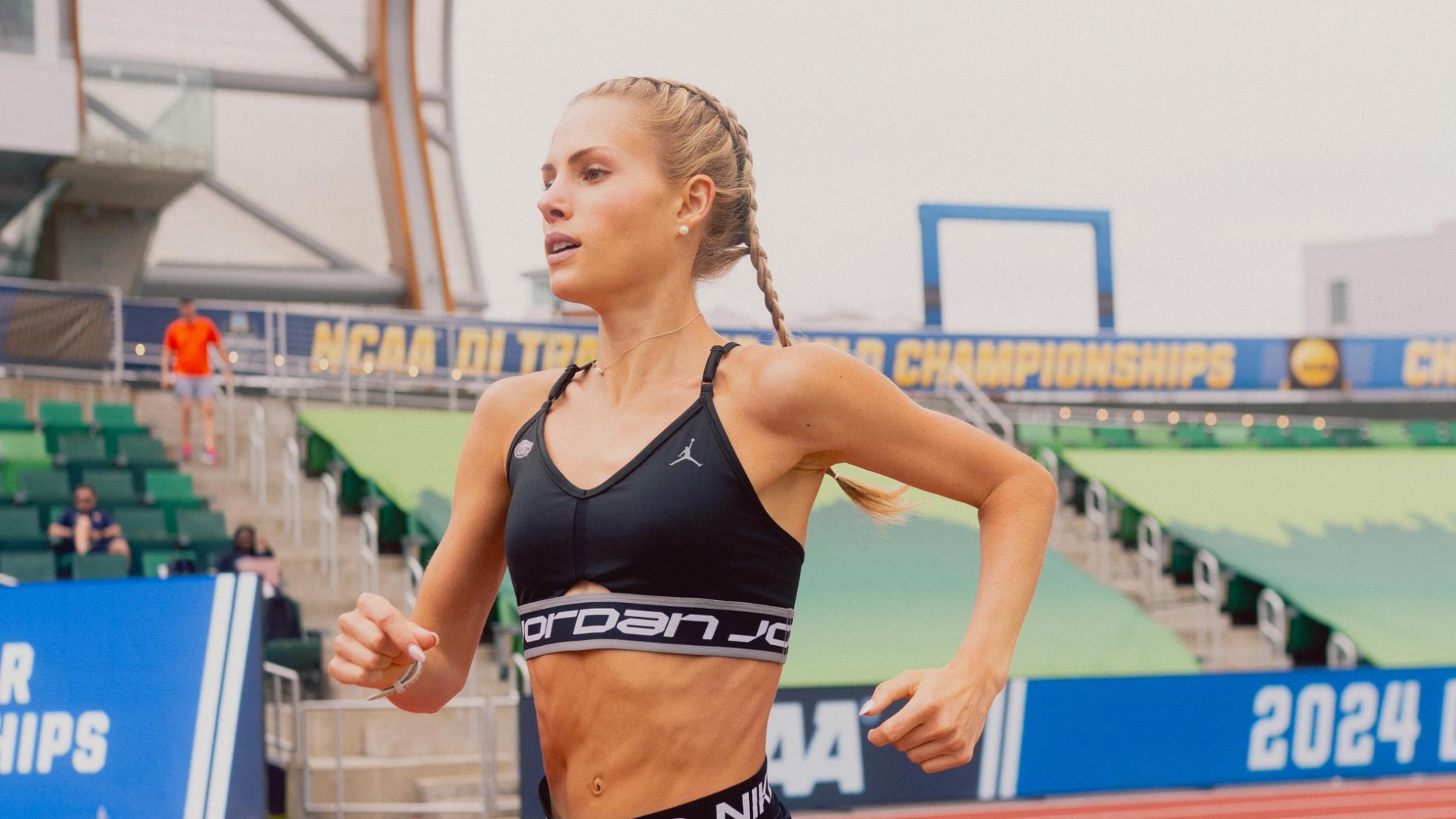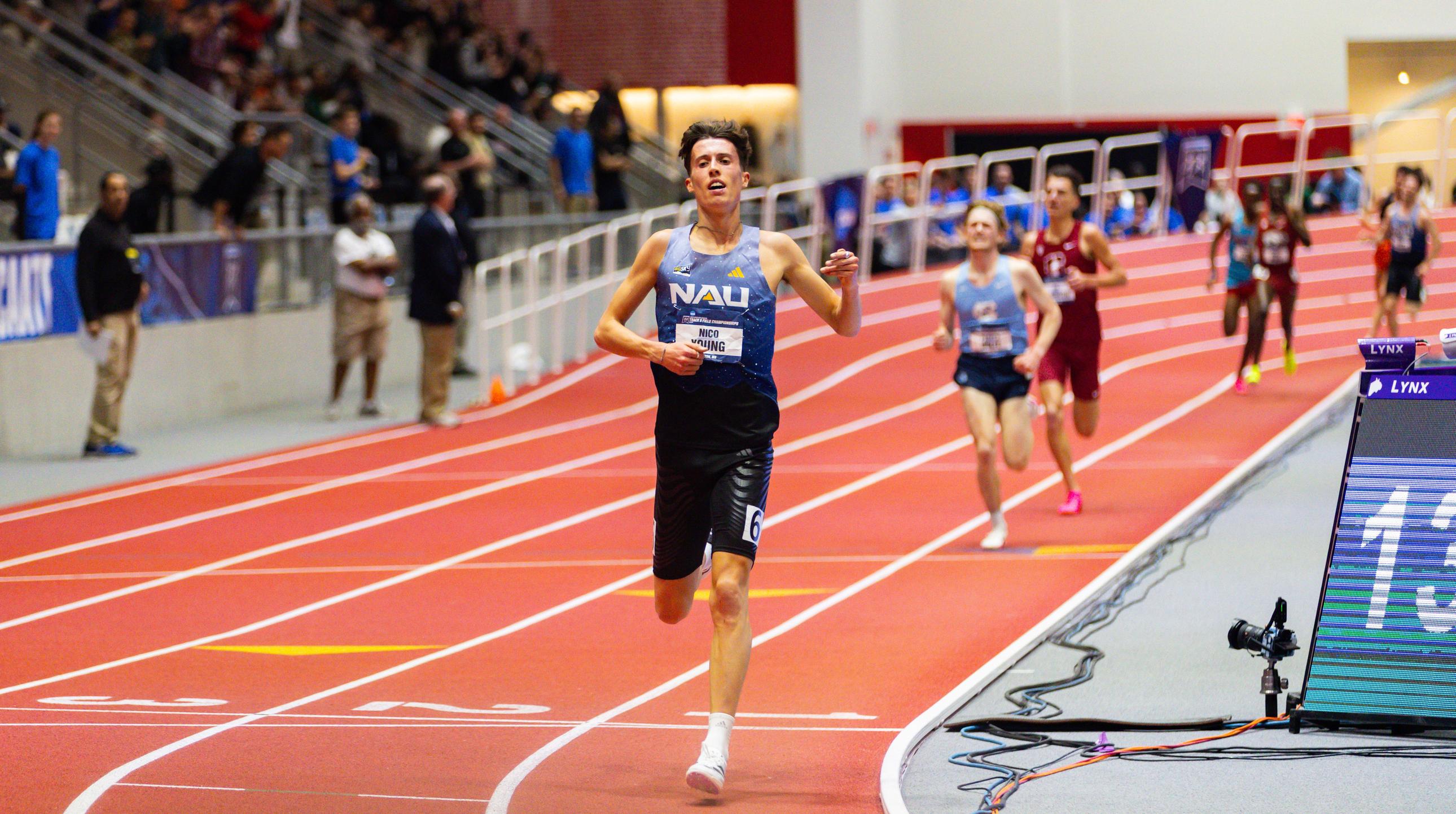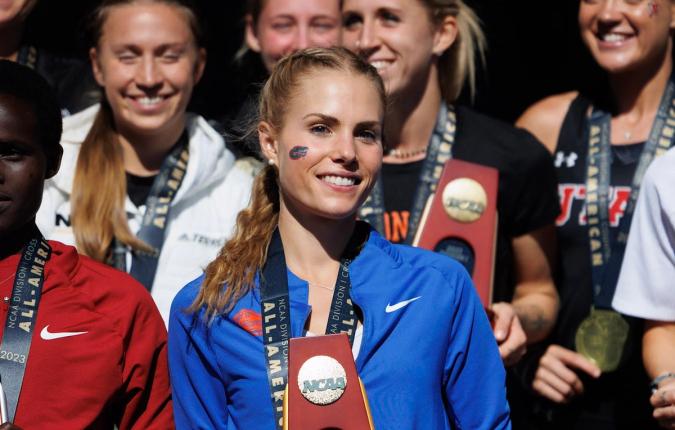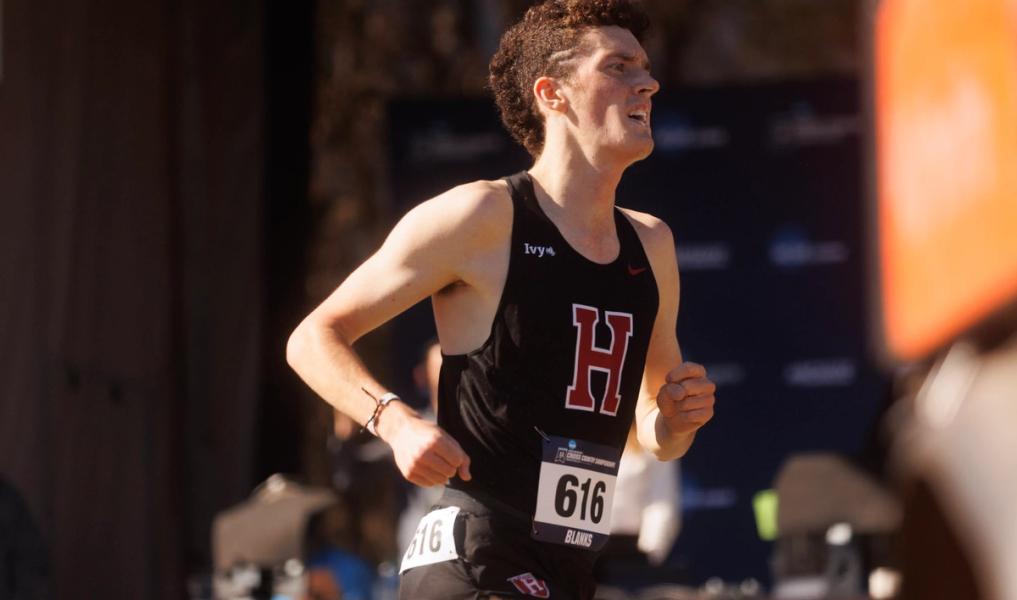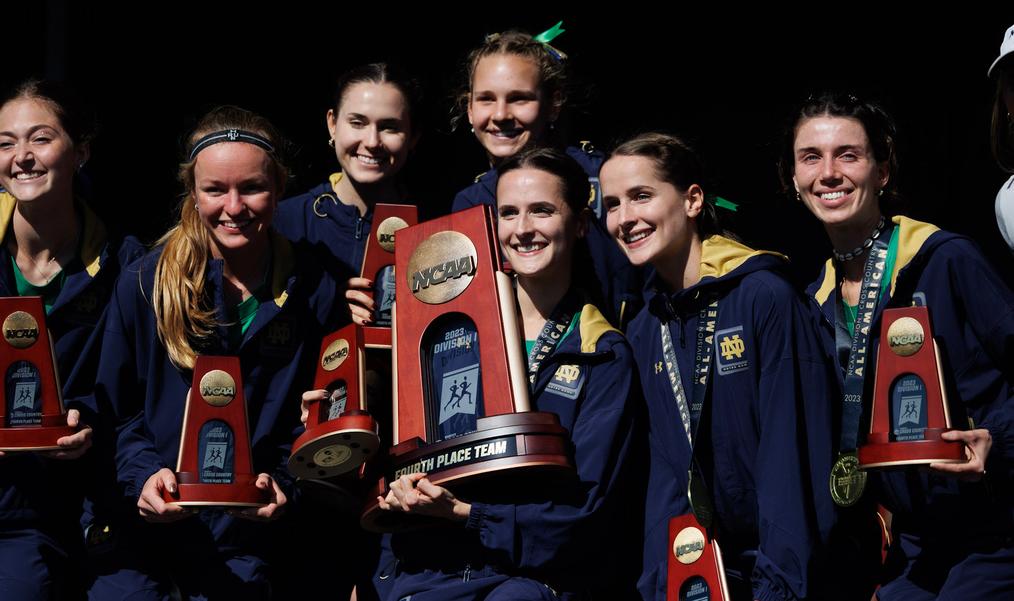By Paul Hof-Mahoney
June 3, 2024
This outdoor season in the NCAA has been nothing short of historic. Between plenty of collegiate records, a few world leads, and too many jaw-dropping performances to count, it’s been everything you could possibly want as a track and field fan. With three months of great competitions behind us, what better way to cap it off than with the 24 best athletes in each event going head-to-head against the backdrop of Hayward Field for the title of national champion?
While every event has some athlete or storyline that is definitely worth keeping an eye on, we’re going to be breaking down just one competition, men’s and women’s, for each event group that is guaranteed to be appointment viewing.
Sprints
The typical “premier event in track and field” looks to be the best race in the men’s sprints in Eugene, not just because the 100m field is incredibly fast, but because it’s also incredibly wide open.
The joint collegiate leaders are Favour Ashe of Auburn and T’Mars McCallum of Tennessee, both having run 9.94 this season. McCallum ran his fastest race of the year in April, and has since run 10.03 in the SEC final and 10.04 in the second round of the East regional. Ashe, meanwhile, looks to be peaking at just the right time. His 9.94 came in that second round in Lexington last week, where he finished almost a full-tenth of a second faster than anyone else in the field. He’s also shown solid consistency this season, breaking 10 seconds on two other occasions. Ashe finished runner-up on this track at the 2022 NCAA Championships while running for Tennessee.
Just behind these two sits SEC champion Godson Oghenebrume of LSU, with a season's best of 9.99. While the collegiate leaders do look to have a pretty significant advantage on Oghenebrume based solely on what the clock says, Oghenebrume did take down McCallum (3rd, 10.03) head-to-head at SECs in a race Ashe was a DNS in. In terms of times, he’s also ahead of where he was heading into nationals last year, where he ran 9.93 in the heats and 9.90 in finals to finish just a hair behind Courtney Lindsey.
While these three SEC stars have looked great all season and each have a strong claim to the title of favorite, the biggest story coming out of regionals was the University of Houston duo of Louie Hinchliffe and Shaun Maswanganyi. Hinchliffe, who has a wind-legal season’s best of 10.00, ran 9.84 with a +2.5m/s wind at his back in the second round of the West regionals last Friday. This was the 10th-fastest all-conditions time in collegiate history and it placed Hinchliffe 2nd on the British all-conditions list, just behind Zharnel Hughes’ 9.83 national record from last June. Maswanganyi finished 2nd to his teammate in 9.89, running the second-fastest all-conditions time of his career. If championship experience is something you value, Maswanganyi has it in spades. This will be his fourth consecutive NCAA Championships, finishing 2nd in 2021, 9th in 2022, and 3rd in 2023. He’s also made the finals in the 200m each of those years as well, with his best finish being a bronze in 2021. He also represented South Africa at the Tokyo Olympics and both of the last two World Championships. ALSO his coach is Carl Lewis. If there is a favorite to be picked, I think I’ll go with Maswanganyi to finally take home his first national title.
The standout event feels like a pretty easy pick on the women’s side, because what the Arkansas 400m team has done this outdoor season is so hard to wrap your head around. The quartet of Nickisha Pryce, Kaylyn Brown, Amber Anning, and Rosey Effiong have completely rewritten the record books over the last month-and-a-half. Alongside their new 4x400m collegiate record from regionals, Pryce (49.32), Brown (49.47) and Anning (49.51) became the third-, fourth-, and fifth- fastest women in collegiate history amidst their 1-2-3 finish at SECs. After another stunning showing at regionals, where Effiong finished ahead of Anning and dropped her PB to 50.11 in the process, these four have accounted for 14 of the 16 fastest times in the country this year. It seems almost pre-determined that they will make more history in Eugene, and former Razorback Britton Wilson’s collegiate record of 49.13 might have to sleep with one eye open.
If there is one woman who stands a chance at breaking up an Arkansas sweep, it’s Georgia sophomore Aaliyah Butler. Butler has the other two times inside that top 16 we had mentioned earlier, and her PB of 49.79 places her eighth on the all-time collegiate list. Unfortunately, that time was only good for 4th at the SEC Championships. If that stat alone isn’t a perfect example of how ridiculous the Arkansas women have been in 2024, I don’t know what else would be. Butler is coming off of an easy 50.30 clocking and a comfortable win in a far less competitive East regionals, and you can be sure she’ll be looking to break up a Razorback party on the podium this week.
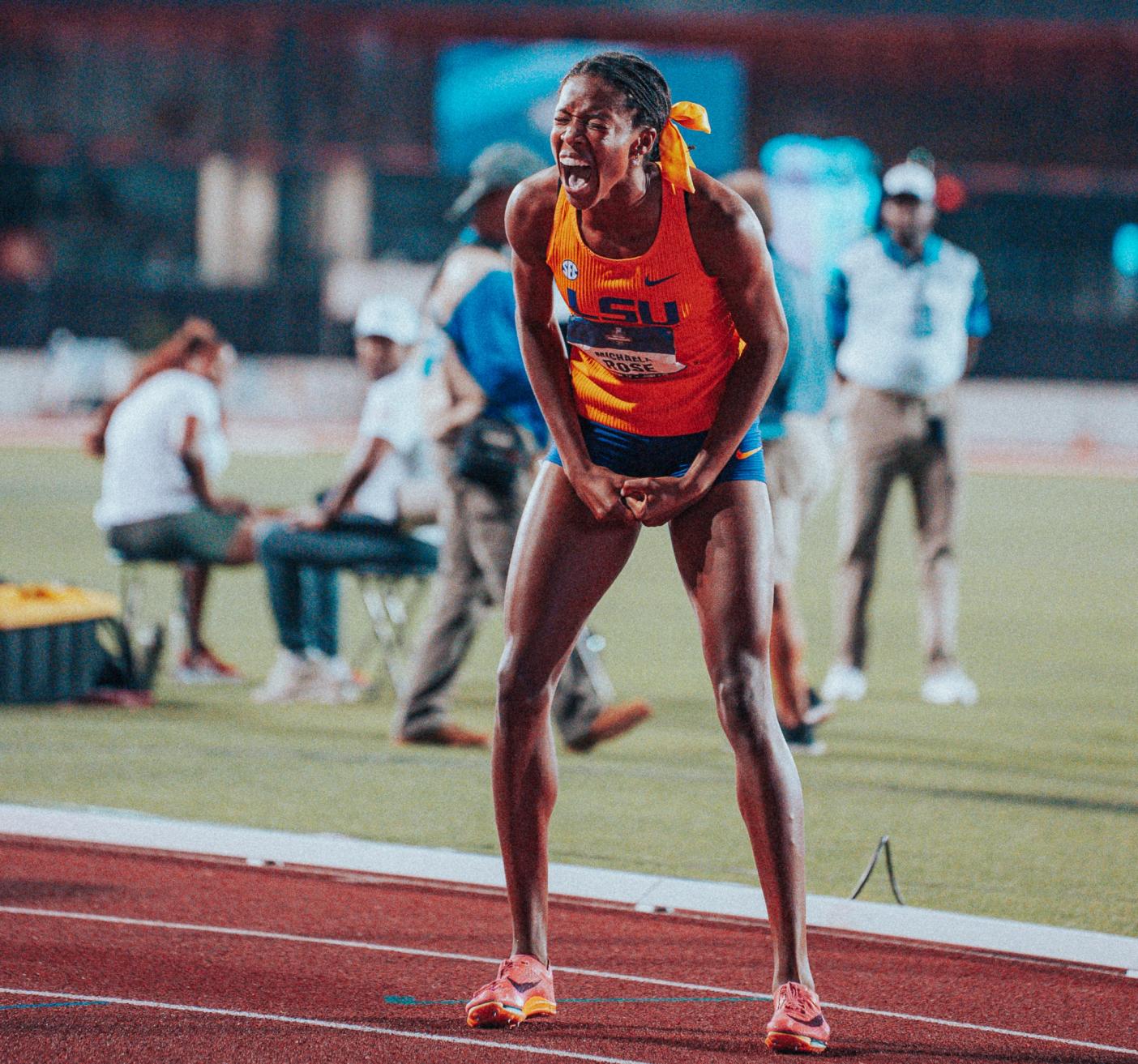
Xavier Gallo / @xaviergallo
Distance
Picking one event out of the women’s distance races was probably the hardest part of this whole exercise. Can Michaela Rose finally take down Athing Mu’s collegiate record in the 800m? Will Parker Valby become the first woman since Dominique Scott in 2016 to complete the 5000m-10,000m double? Is Courtney Wayment’s steeplechase record under threat from the duo of Doris Lemngole and Olivia Markezich? Each of these events and storylines have their own merits, but we’re going to take a deep dive into a deep and incredibly talented 1500m field.
The conversation starts with Harvard’s Maia Ramsden. The reigning NCAA champion in the mile and 1500m has run two of the four fastest times in collegiate history over the last two weeks. Dropping the 2.5 seconds she would need to reach Jenny Simpson’s (nee Barringer’s) collegiate record of 3:59.90 might be a big ask, but if anyone would be capable of that it would be Ramsden.
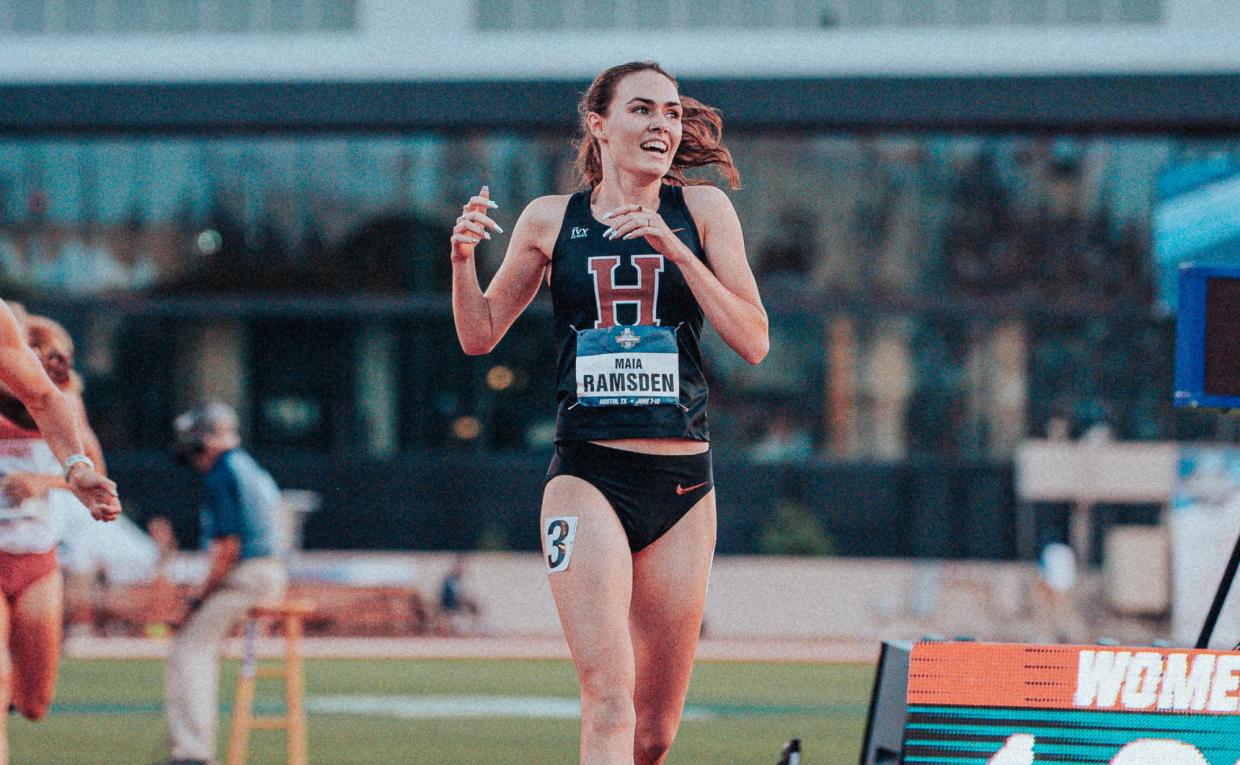
Xavier Gallo / @xaviergallo
It’s also worth keeping an eye on Ramsden in the 5000m, after she dropped 11 seconds off her PB at East regionals to qualify for Eugene with the third-fastest time across both regionals.
Ramsden will by no means be alone, however, as eight other women have entered the top 25 performers in collegiate history this season. At the front of this pack are Providence's Kimberly May and Florida’s Flomena Asekol. May and Asekol had a pair of phenomenal battles to the line in the East regionals. May took the first round in 4:07.00 to 4:07.43, and Asekol took the second round in 4:07.10 to 4:07.51. The fastest time by each woman placed them 11th and 12th on the all-time list, respectively, and putting them in the same race as Ramsden this time could produce something truly special.
The men’s 5000m is, in a word, star-studded. NAU’s Nico Young has to be the favorite after an indoor season where he became NCAA champion in both the 3000m and the 5000m, in the process shaking off the idea that he couldn’t win big races. He also ran the fastest 5000m in collegiate history, indoors or out, in 12:57.14. He’s picked up right where he left off outdoors, setting a new collegiate 10,000m record in March and showing some speed with the third-fastest 1500m in NCAA history last month. His 10,000m record unfortunately was outside of collegiate competition so he couldn’t qualify for the NCAA postseason, but that just means he’ll have more in his legs for the 5000m, which is a scary thought.
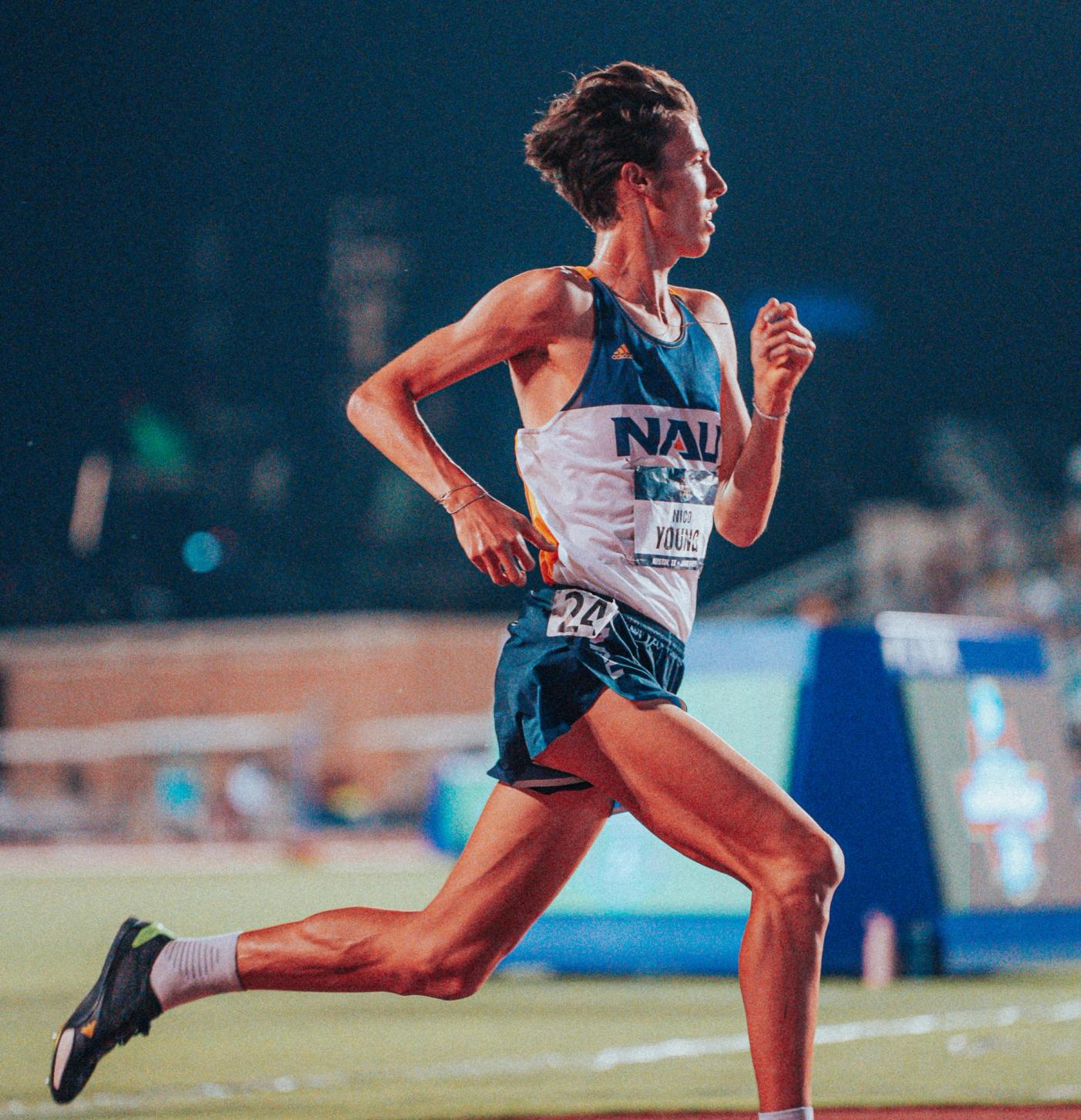
Xavier Gallo / @xaviergallo
Graham Blanks (cross country) of Harvard and Ky Robinson (5000m, 10,000m) of Stanford are two more reigning NCAA champions that have impressive 10K chops but are only contesting the 5000m this week. Blanks ran what was the collegiate record in the indoor 5000m in December – later broken by Young – but didn’t race in 2024 until April 19th. Robinson has been solid both outdoors and indoors, and opted to pass on his NCAA title defense in the 10,000m despite becoming the last ever Pac-12 champion in the event in May.
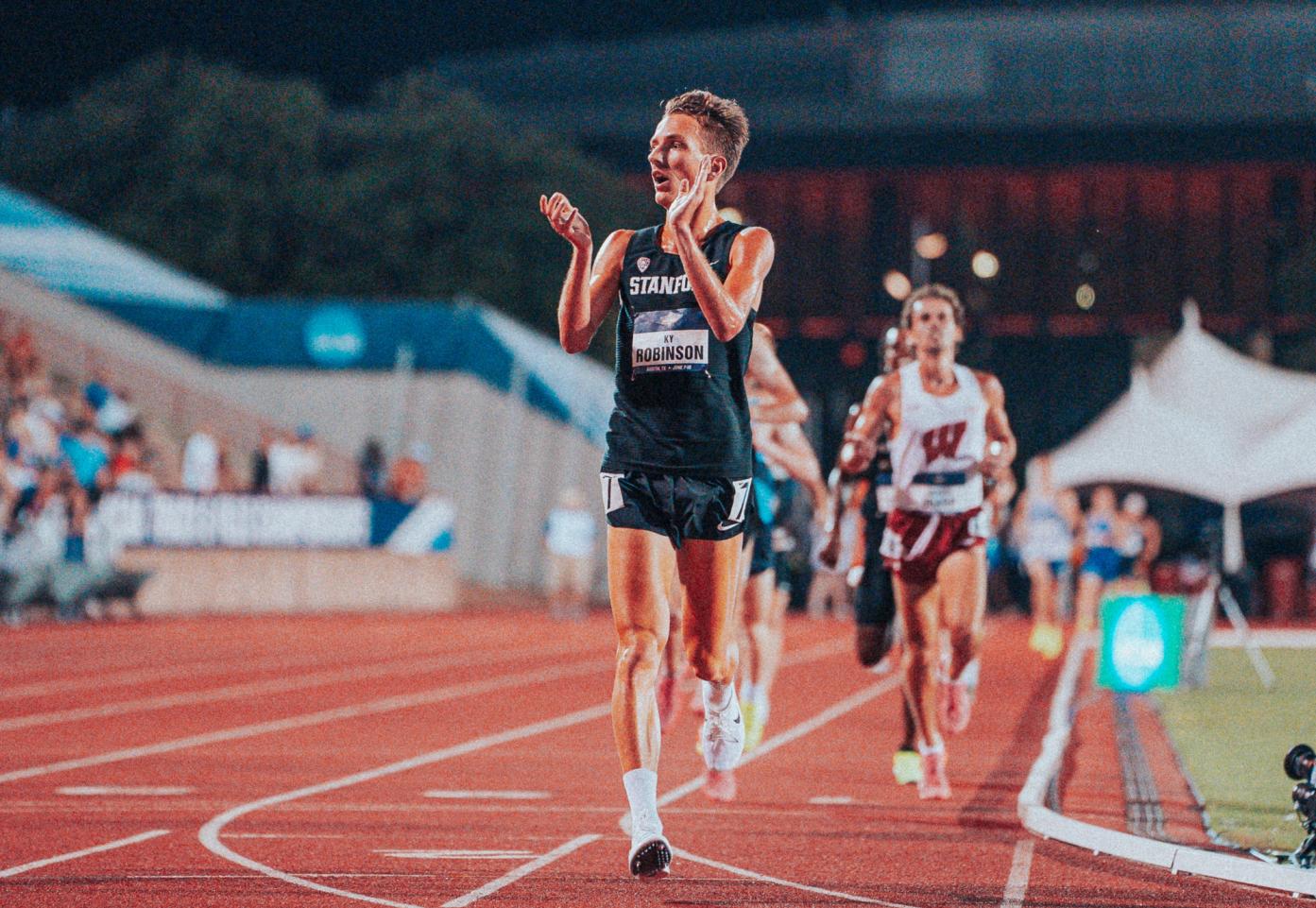
Xavier Gallo / @xaviergallo
The crazy thing is that based on outdoor performances alone, none of these three are even ranked in the top 25 in the country. That’s how deep this event is right now. Freshmen Brian Musau of Oklahoma St. and Habtom Samuel of New Mexico currently sit first and second in the nation this year at 13:13.29 and 13:13.34, over three seconds faster than anyone else in the NCAA. Those times, both run at the Bryan Clay Invitational in early April, place Musau and Samuel sixth and seventh on the all-time collegiate list.
Parker Wolfe of UNC will be another runner to watch in this race. He enters the meet with the fourth-fastest season’s best at 13:19.38 and is the only man in the country this year to have broken 13:30 on two occasions. After finishing runner-up to Young in both the 3000m and the 5000m indoors, it’s safe to say Wolfe won’t be satisfied with another silver.
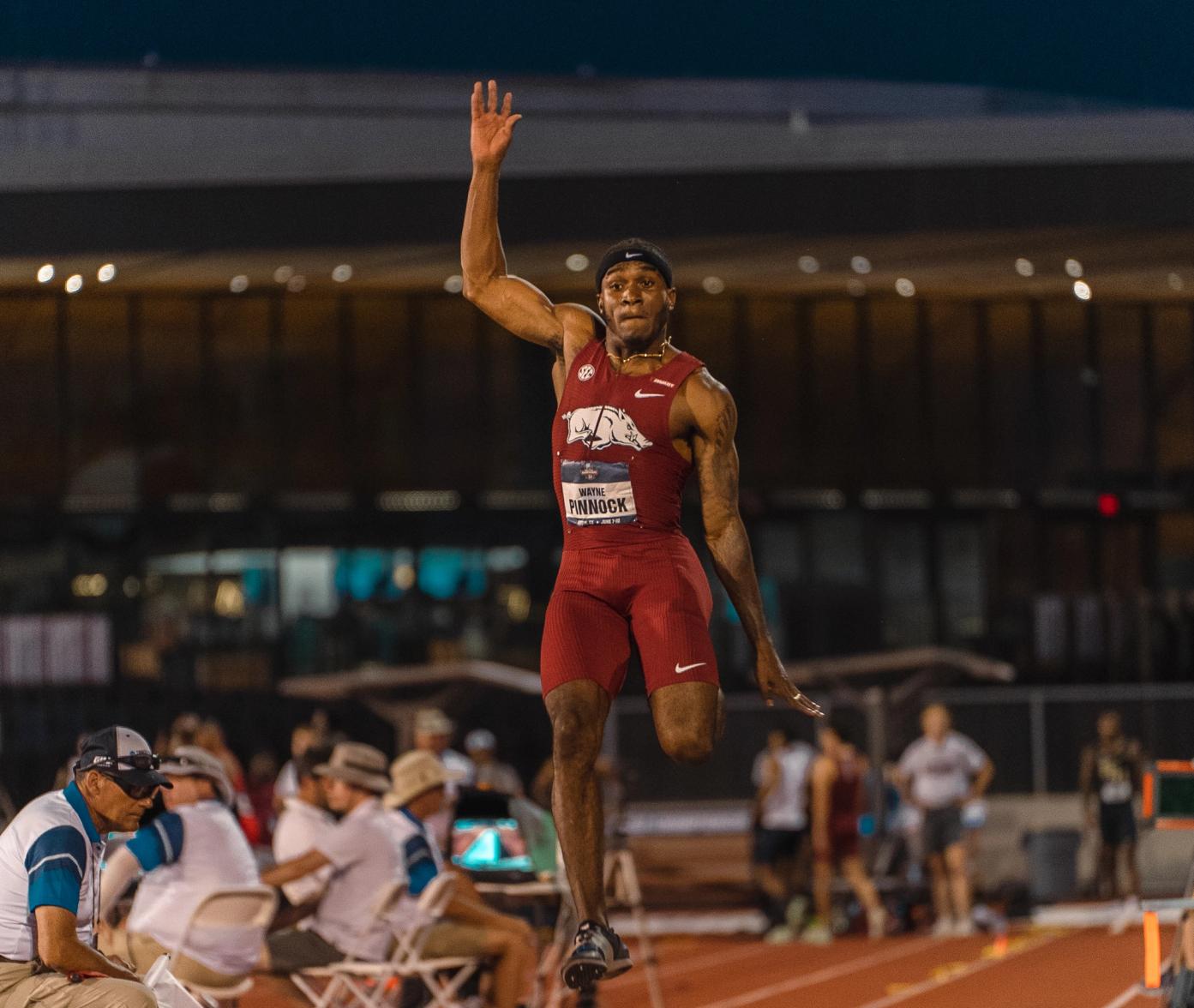
Xavier Gallo / @xaviergallo
Jumps
The men’s long jump has all the ingredients necessary to make an amazing competition. A World silver medallist who entered the outdoor season as a heavy favorite to come away with the title? Yep, Wayne Pinnock of Arkansas. An upset just before the championship? You bet, USC’s Johnny Brackins handed Pinnock his first loss of the season at West regionals. A deep field? Absolutely, seven men in the competition have PBs over 8 meters.
Pinnock dominated the indoor season. In three meets his marks were 8.34m, 8.28m, and then 8.40m to win the national title, which moved him to fifth on the collegiate all-time list and would have won him the World Indoor title a week earlier by 18cm. His outdoor season got underway a bit later than some of his competitors, but his wind-aided 8.44m opener is the best all-conditions mark in the country and second-best in the world right now. His wind-legal season’s best of 8.09m from SECs was at the top of the collegiate list until his loss to Brackins in Fayetteville.
Brackins only finished 4th at NCAA Indoors, but he had become the U.S. national champion a few weeks before that, jumping out to a new PB of 8.23m. Outdoors, Brackins struggled to find some consistency early in the season, but brought it at just the right time. His third round jump of 8.15m last week was the farthest of his life outdoors and actually resulted in his first win outdoors in 2024.
Brackins’ teammate JC Stevenson caught the country’s attention in early April when he jumped 8.37m with +4.2m/s wind at his back and later backed that mark up with a wind-legal 8.05m. Ranked third in the NCAA, he could definitely be a medal contender and should improve upon an 11th-place finish indoors and a 10th-place finish at this meet last year.
Minnesota freshman Charles Godfred has been remarkably consistent all season after a truncated indoor campaign. Prior to a 7th-place finish at West regionals (where he still managed 7.80m), the only time Godfred had lost to a fellow collegian all year was the same meet Stevenson jumped 8.37m. On that day, Godfred managed a wind-aided 8.19m, but also had a wind-legal jump of 8.14m (because it was just an ancillary mark, it doesn’t get worked into the collegiate rankings). With five competitions this year over 7.90m, don’t be surprised if the young Nigerian finds his way onto the podium.
The women’s high jump was one of the highlights of the NCAA Indoor Championships in March and it seems likely that will be the case outdoors as well. Lamara Distin of Texas A&M and Rachel Glenn of Arkansas put on a show in Boston, which ended with Glenn equalling Distin’s indoor collegiate record from two weeks earlier at 2.00m. The marks so far outdoors haven’t been as jaw-dropping. Distin’s best so far is 1.96m and Glenn’s is 1.92m, but they’ve both shown that they can elevate their performance to the highest level when all the cards are on the table.
After finishing 3rd at NCAA Indoors each of the past two years, as well as at NCAA Outdoors last year, Georgia’s Elena Kulichenko has been the most consistent jumper in the country this season. Her only loss came to Glenn at the end of April in Baton Rouge, but she got her revenge two weeks later. Kulichenko beat out Glenn and Distin to win the SEC title in a new PB of 1.95m, which ties her at seventh on the all-time collegiate list.
With these three women going head-to-head-to-head, there stands a solid chance of seeing Brigetta Barrett’s outdoor collegiate record fall and the 2 meter barrier finally broken.
Behind the three favorites, the field includes four more women who have cleared at least 1.90m this outdoor season. Reigning champion Charity Hufnagel of Kentucky is in the field too, but strangely enough she might have a better chance at the podium in the heptathlon, which she enters seeded fifth.
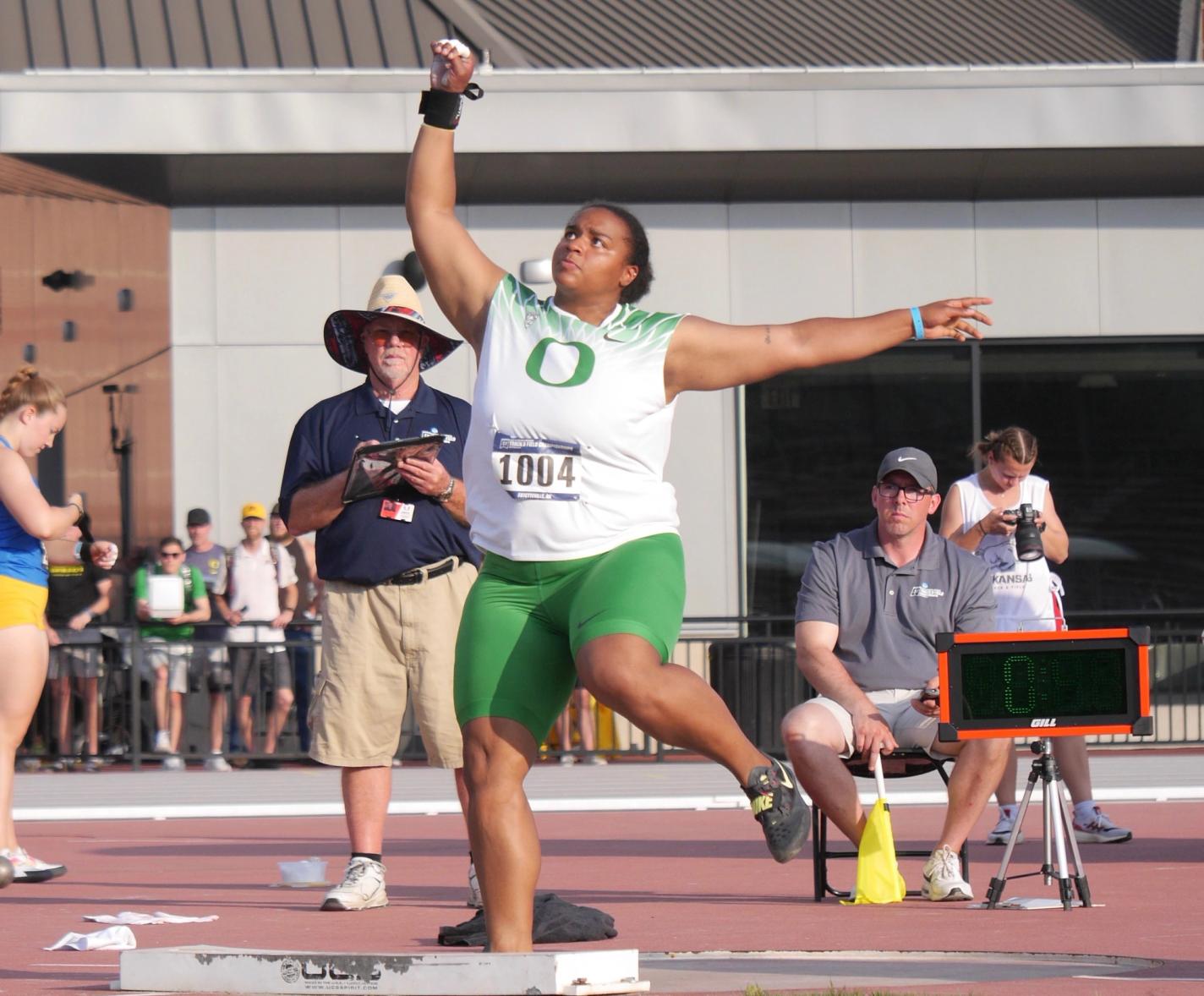
Throws
2024 has been a historically deep year for the women’s discus in the collegiate ranks. Seven women have cracked the 60 meter barrier, the most in a single-season since 2016. The high-end performers have been there too. Veronica Fraley of Vanderbilt (67.17, 3rd), Alida van Daalen of Florida (65.25, 4th), and Jayden Ulrich of Louisville (64.29, 10th) have all entered the ranks of the 10 best performers in collegiate history.
The three favorites all met in Lexington last week and gave us a taste of what’s to come in Eugene. Van Daalen took the victory with maybe the most astonishing three-throw series you could imagine. Her first throw was a mere 50.04m, by far the worst measured throw of her season, but she answered that with 65.23m and 65.25m on her next two and ended up winning by almost 2.5 meters. Ulrich finished 2nd throwing 62.95m and Fraley finished 3rd at 58.53m.
The most impressive thing about the field that will assemble this week is their remarkable consistency. Four women have thrown 60m five times this year, with Colorado St.’s Michaela Hawkins joining the aforementioned trio, and van Daalen has actually crossed that threshold seven times if you include marks of 66.00m and 66.31m from non-collegiate competitions in Ramona, Oklahoma, in April.
The collegiate record holder in the shot put, Oregon’s Jaida Ross, will be a part of this discus field as well and sits 26cm away from becoming the eighth member of the 60m club this year.
If you aren’t a big javelin fan, the men’s competition this week will make you one. Unfortunately, the collegiate leader, Jordan Davis of Southern Connecticut, won’t be competing in Eugene. That’s because he already wrapped up the DII national title two weeks ago with a mark of 84.45, which is 5 meters farther than any other DII athlete has ever thrown. But don’t worry, the DI guys have plenty to offer.
Baylor’s Chinecherem Nnamdi moved into the top position in DI heading into nationals with a huge mark of 82.54m at West regionals. This was still a quarter-meter behind Nnamdi’s PB though, as he threw 82.80m in March to become African Games champion. After failing to break 80m last year and still finishing 3rd in Austin, Nnamdi looks to be in a great position to win his first NCAA title.
The rest of the 80 meter group this season consists of Marc Minichello of Georgia, Mike Stein of Iowa, and Dash Sirmon of Nebraska. Minichello was the NCAA champion in 2022 while at Penn and threw at least 81m in each of his first three meets of the season. However, his last two marks have been only 77.92m (still good enough to win his second-straight SEC title) and 75.11m. Whether this recent trend is a true concern will be determined this week. Stein and Sirmon, on the other hand, seem to be peaking at the right time, with both of their 80m throws coming at the Big 10 Championships (Sirmon’s mark of 80.86m is the best mark of his career by 5.51m).
Two interesting athletes that aren’t necessarily sitting at the top of the pack right now are Keyshawn Strachan of Auburn and Tzuriel Pedigo of LSU. Strachan opened his collegiate tenure last year with what was then fourth on the all-time collegiate list of 84.27m. Since then, his career has been somewhat perplexing. He only competed once more in 2023 and missed the entire postseason, but his mark held up as the best in the country throughout the whole year by almost four whole meters. This year, he’s only competed in three meets, including passing on SECs in May. His season’s best of 76.25m positions him in ninth heading into these championships, but if can capture lightning in a bottle the same way he did last year, he’ll be untouchable. For Pedigo, 2024 can only be described as weird. Coming into the season off of a national title in 2023, his season’s best of 68.53m, set at East regionals, ranks him outside the top 50 competitors in DI. His best mark this season is six meters worse than his worst mark in collegiate competition last season. If there is some sliver of hope for Pedigo though, it’s that the two best performances of his life came at the 2023 NCAA Championships and the 2022 NCAA Championships. It’s never had to be this extreme of an improvement before, but he’s shown on multiple occasions that he’s the definition of a championship performer.
The 2024 NCAA Outdoor Championships will take place from Wednesday, June 5th to Saturday, June 8th. All days will be streamed on ESPN+. Wednesday-Friday will be broadcast on ESPN2 and Saturday’s action will be on ESPN.

Paul Hof-Mahoney
Paul is currently a student at the University of Florida (Go Gators) and is incredibly excited to be making his way into the track and field scene. He loves getting the opportunity to showcase the fascinating storylines that build up year-over-year across all events (but especially the throws).
